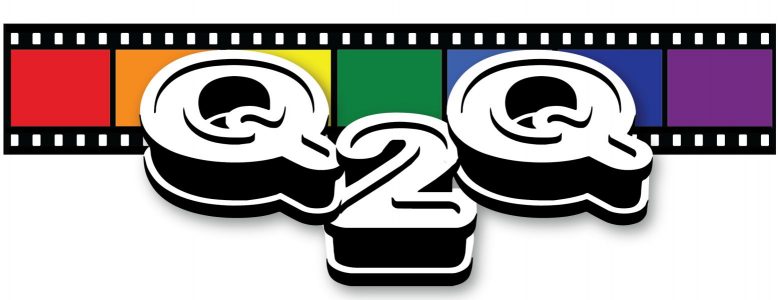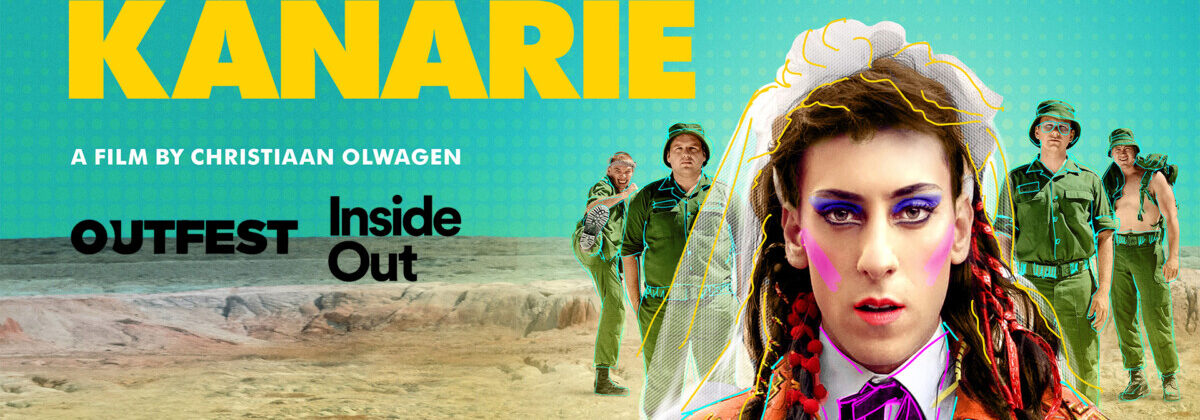Colin Hi, welcome to The Film Festival Doctor’s blog 🙂
Could you kindly tell my reader a little bit about yourself and your background?
Absolutely! Well I went to Collin College for theatre and then transferred to UNT for English. I have always lived in movies as much as I’ve lived in the real world. In some ways the things I have to express as an artist come more from films I’ve digested than things I’ve actually experienced. I think film lovers find their dreams onscreen and then start to dream of films when they fall asleep. Many of my friends are film lovers too, and my absolute first choice for a good time out or in is catching a showtime.
You are one of the directors of the Dallas based Queer 2 Queer Film Festival – can you tell us more about the festival and what your vision is?
“Queer 2 Queer” is a celebration of identity, subculture, and writing without restriction. While we have all of our films available for online viewing during the run of each season, we always have an in-person showing at one of our DFW locations. These locations vary, but our last event took place at the Margot Jones Theatre in Fair Park, and who knows where you’ll see us hosted next. We feature narrative and documentaries with a high emphasis on short works. We work hard to choreograph a variety of expressions that focus on uniqueness, and I’m proud to say that we’ve showcased LGBTQ and ally voices from across the globe. There’s no rigid construct that makes something Q2Q or NOT Q2Q, and our team prides ourselves on trusting the intuition of our selection panel. Knowing what films to select is kind of like knowing you’re queer. There’s no list of check marks. It’s a feeling.
Why did you want to create the Queer 2 Queer Film Festival?
Growing up as a closeted queer man in Texas meant that I often had to project onto movie characters who were not conceived as or by LGBTQ people. That’s a fine thing, because it is a great gift to find connections in someone different from yourself. While I certainly don’t need (or want) every movie to speak with the intention of reaching a queer audience or to center around queer stories, it’s a shame we see them so little. Any marginalized individual who regularly attends the theater or streams quality content has felt this. Queerness is very common in our society, but many stories about it or by the people who identify as such have been erased. The truth is though, while there have always been and will always be tons of queer people everywhere, the market for stories by and for them is small. I would say it’s small in general, but it seems especially so in Texas, and even more especially so in DFW. I love my city, but it was advantageous for me to create a film festival that didn’t exist yet, and that’s how Q2Q first grew. We don’t yet live in a world where subculture orientations are regularly accepted, but the “Queer 2 Queer Film Festival” is one place where creators of any orientation know their vision is welcome, regardless of its divergence from heteronormative themes.
What have been your highlights and favourite moments of the festival so far?
One trans filmmaker who submitted the short “Capital Barbie” came into Texas from New Mexico to watch it as a part of our last Margot Jones showcasing, and that effort really stuck with me. I’d never generated anything that made a stranger proud enough to book a plane ticket, and it made me think that it’s possible our little festival is more important than I even realize. At that same festival I was told by local trans filmmaker, Chaselyn Wade, that seeing a room full of people appreciating the under-appreciated reinvigorated her work in film. She’d lost her way, and Q2Q helped her get excited about making movies again. That was everything to hear, especially because Chaselyn is just a complete and utter badass. There’s lots to list, but my bestie from UNT is trans, and seeing him beside me on the Q2Q discussion panel reminded me that sometimes we can do a really good job.
Thank you for screening and awarding one of my clients short films ‘DASH’ a prize – tell me more about what you liked most about that film and why it was a good fit for your festival.
“Dash” is somewhere we’ve all been. So much of queer life, especially when you’re closeted, is about the people walking around you that pass through. Sometimes they’re like ghosts, moving across some different plane like you don’t exist beside one another. Sometimes the glance they gave your way or the glisten of their exposed stomach lingers like a specter. No matter the external or internal force, not being in your own body can make you feel like a passerby in your own life. You go through the motions so you won’t be depressed about not living as you know you are meant to live. This is the process of numbing, and “Dash” is all about the shake up. It’s a short, experimental piece, but you feel what is so special about leaning into the truth of your expression. Truth of expression is just what the filmmaker gave us, and it was a pleasure to celebrate that. That’s what we want to celebrate every time we produce an event.
What types of LGBTQ films are you looking for to programme?
We’re open to all films, and if anyone can surprise us, I guess that’s the greatest desire. We want to watch films that don’t feel derivative, disdainful of progress, or divisive. Bring us something that feels like it exists for itself or because someone was passionate enough to bring it to life. We’re in the unique position of not having any difficult guardians to satiate or placate. Therefore, the more outside the box the film, the better. The more honest and less over-produced the message, the fiercer. Give us your grit and your girly pop. We are the everything AND the in between, so be there with us if you’re brave enough.
What are your plans for the next edition of the Festival and how can we support you?
At present, we’re looking at funding a new showcase for the summer of 2024, so we might not be doing anything grand scale until then. However, you will be seeing us in online events leading up to that as we’ve recently connected with Filmocracy. We’re also in the process of building up our podcast, YouTube, and TikTok. Not to mention, we’re shopping the festival for sponsorships, and that goal will be a big indicator of our next big step forward. Our primary focus is to grow what we already have, but in order to do this and hire more staff, we need those crucial months of preparation. Q2Q is queer and here to stay. It’s tricky to generate demand for something so niche, but our loyal following is all we need. The people who submit to Q2Q deserve a place for their work to be seen without judgement or upheaval, and we’re gonna give it to them for as long as we can.




